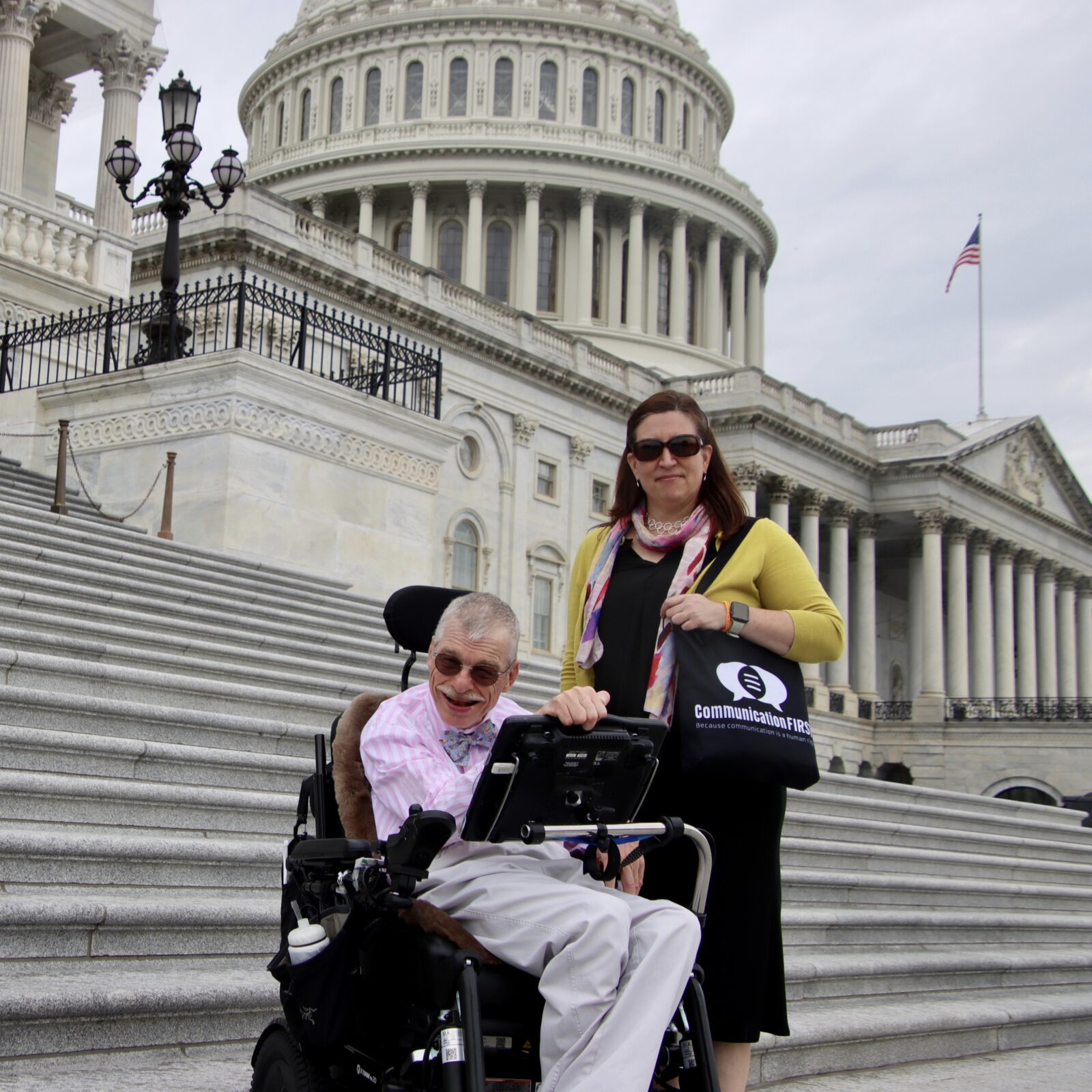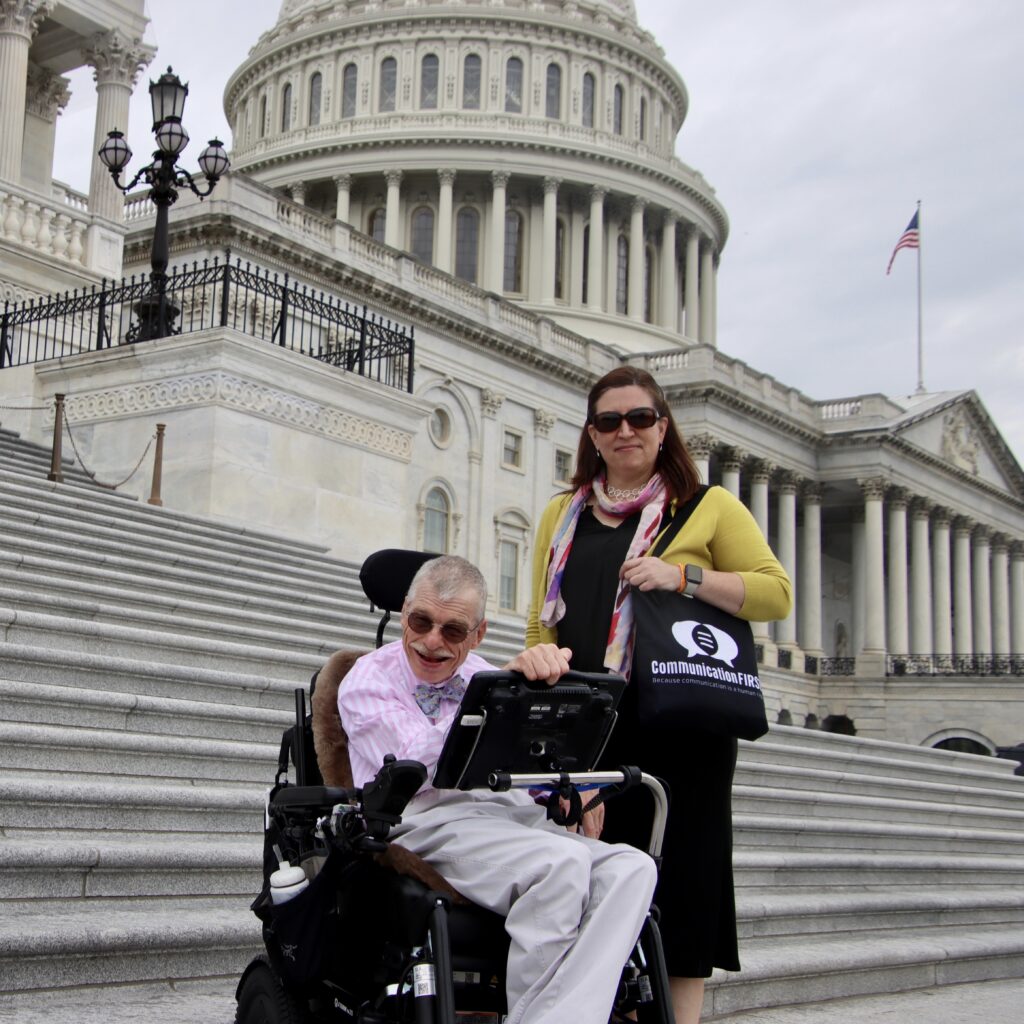In celebration of Bill of Rights Day (December 15), CommunicationFIRST’s Bob Williams reflects on freedom of speech and the power this right holds for those of us who cannot rely on speech alone to be heard and understood.
The First Amendment to the U.S. Constitution: “Congress shall make no law respecting an establishment of religion, or prohibiting the free exercise thereof; or abridging the freedom of speech, or of the press; or the right of the people peaceably to assemble, and to petition the Government for a redress of grievances.”
* * *
Millions of children and adults who need AAC here and around the globe are robbed of their freedom of expression and, thus, their other fundamental rights on a daily basis. As a result, many live incommunicado throughout their life.
Access to assistive technology and other effective means of expression is vital. Having the power to speak one’s heart and mind changes this equation dramatically, taking a sledgehammer to the age-old walls of myths and stereotypes, and shattering the silence that looms so large in many people’s lives. Too many continue to be denied access to needed communication devices. They are also therefore denied access to literacy learning, deemed incompetent to direct their own lives, segregated, and worse.
Why are so many people consigned to lead lives of needless dependence and silence? Not because we lack the funds, nor because we lack the federal policy mandates needed to exercise these rights. Rather, many people lead lives of silence because many others still find it difficult to believe that “those people” have anything to say or contributions to make.
We must disrupt and end these fallacious stereotypes and the wretched discrimination that follows. There must be a radical shift in attitudes, expectations, values, and most importantly, how we are treated as well as how we demand to be treated. Fortunately, for some of us, that shift occurred early in life. My family and I both expected me to communicate, and we did whatever it took to make that happen. By working as one, we can and must bring about that radical shift in expectations and life experiences in others’ lives, as well.
America can no longer afford to have a few exceptions to the rules. Let me suggest some ways in which we need to foster a shift in expectations and attitudes. We must:
-
- Advocate for and affirm the right and ability of everyone to effectively express ourselves. There is no constitutional right to obtain an AAC system. However, discriminatory policies and methods that abridge and negate our freedom of expression, I believe, violate our First Amendment rights.
- Recognize community is not simply a place: it is a complete way of life, a complete way of communicating with each other. The purpose of the Americans with Disabilities Act is to assure we have the right, opportunity, and support to live as equals in community with all others. Community , communication, and human connectivity are mutually reinforcing and interdependent.
- Recognize that we learn to express ourselves based on our needs, abilities, and circumstances. There are no right or wrong ways to express oneself. For well over a century, sign language was held in disrepute. Over a generation ago, professionals were cool to the idea of my using a communication board. No one remotely suggested that I should use one until well into my teens. Things are little different in many places today. If someone cannot use a speech generating device because of its technological shortcomings, the person is often seen to be “the problem,” and their right to self expression goes unmet.
Due to strides in law, technology, education and health care, more people than ever have effective access to AAC—we use it to communicate and to live our lives. Yet, far more progress is desperately needed. Mounting evidence tells us that those who lack access to effective AAC experience increased risk of abuse (Bryen, Carey, & Frantz 2003, pp 19 & 125-134) as well as poorer education, employment, and health outcomes. Black, Indigenous, and People of Color who require AAC are likely among those most harmed by such discrimination (Alper 2017; Ellis, Jacobs, Keene, & Grubaugh 2020; Kulkarni & Parmar 2017; De Leon, Solomon-Rice, & Soto 2023, pp 1-10).
Most take their First Amendment rights for granted; we must not.
Download in PDF form here.


